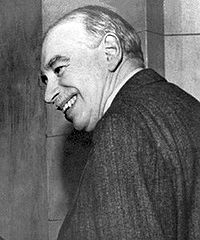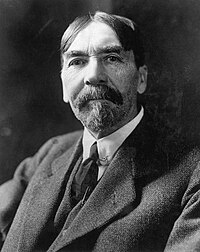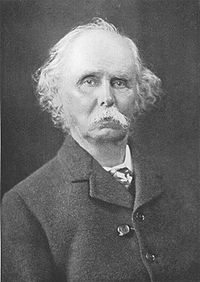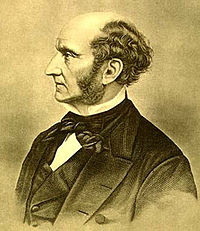Histroconomy
Learn from past, Act on present, Prepare for future
Thursday, September 20, 2012
Benjamin Graham
While the theory and concept might not be the perfect get rich quick formula, but it is a very useful principle to keep by investor. The scope of variable in reality is much more wider than we discussed previously in order to complete the formula. Some of it are much more complicated and qualitative such as investors sentiment, political event, social factors, technological cycle and so on. And many of those are required long experience which only can be harvest by mistake and times. It a rather a keep you continuously learning formula than a simple answer to rich answers. It is how he do it, and it is how his disciple did it. Warren buffet, one of his most prominent disciple has proved his theory is very powerful. Powerful enough to make him the most successful investor in the world. At least in term of money amount he able to profit from.
Tuesday, August 2, 2011
The Rich Make The Rules
 Throughout human history, we perceived the authorities body i.e. government, the kings, the queens make the rule. Society had very little or nothing to control over the rules made upon them. The Ancient china civilization, Egypt Civilization and Medieval European empire had depicted the scenario. The people are living under merciful of their kings or queens. The kings and queens had since be able to rules his or her countries in the favor of his or her own.
Throughout human history, we perceived the authorities body i.e. government, the kings, the queens make the rule. Society had very little or nothing to control over the rules made upon them. The Ancient china civilization, Egypt Civilization and Medieval European empire had depicted the scenario. The people are living under merciful of their kings or queens. The kings and queens had since be able to rules his or her countries in the favor of his or her own. Friday, July 8, 2011
Underestimating the Malthusian Catastrophe
 Parson Malthus, a English Scholar during 17th century once pointed out the limitation of natural resources will be the Achilles's Heel of human civilization. Such warning had been undermined by many both mainstream politician and academia. The history throughout modern age had proven we human have the capability, by science and technology to compensate any downfall of natural resources. Optimist believe we are living in the abundance where everything exist in the world are more than enough to support all life for eternity. One downsize of natural resource can be replaced by the new one with the effort to discover. We had live through many crisis since 17 century due to the risk of pitfall of natural resource, particularly energy. And today, we still survived with a living standard consider to be unimaginable even for the Kings and Queens during middle age. from lumber (woods) to coal. From Coal to fossil oil. From fossil oils and gradually hybrid with natural gases. The cheap natural resources are been exploited since world war II by human. And now, with the raise of oil price at all time high (98USD per barrel), we have to realize that natural resource does have its limitation. From the point of survival, all we have on earth should be sufficient. However, the natural was never created to sustain excessive energy consumption, greed and selfishness of exponential growth homosapiens. More than comfortable, most of us are pursuing life of luxury. 3 SUV per family, 6 air-cons on a mansion by a size of family with 2 kids and ever continuously expansion of indulgence industry. As merely 20% of every life on earth, we now consuming almost 90% of all resources like there is no tomorrow. Not to be pessimistic, rather realistic, if we still live in a dream utopia world with abundance of cheap energy ; Robert Thomas Malthus might be able to see his theory right in near future. Let alone the aftermath disastrous to environment of current fossil oil exploration, we human shall be more responsible for the long term survival of our civilization to change, at least for our next generation. If nothing is done to make correction before it is too late (when current dependence natural resources running out), our civilization will collapse. I do not want to see my grandson going back living in the cave, despite our achievement in technology are at the peak ever since the modern world is born.
Parson Malthus, a English Scholar during 17th century once pointed out the limitation of natural resources will be the Achilles's Heel of human civilization. Such warning had been undermined by many both mainstream politician and academia. The history throughout modern age had proven we human have the capability, by science and technology to compensate any downfall of natural resources. Optimist believe we are living in the abundance where everything exist in the world are more than enough to support all life for eternity. One downsize of natural resource can be replaced by the new one with the effort to discover. We had live through many crisis since 17 century due to the risk of pitfall of natural resource, particularly energy. And today, we still survived with a living standard consider to be unimaginable even for the Kings and Queens during middle age. from lumber (woods) to coal. From Coal to fossil oil. From fossil oils and gradually hybrid with natural gases. The cheap natural resources are been exploited since world war II by human. And now, with the raise of oil price at all time high (98USD per barrel), we have to realize that natural resource does have its limitation. From the point of survival, all we have on earth should be sufficient. However, the natural was never created to sustain excessive energy consumption, greed and selfishness of exponential growth homosapiens. More than comfortable, most of us are pursuing life of luxury. 3 SUV per family, 6 air-cons on a mansion by a size of family with 2 kids and ever continuously expansion of indulgence industry. As merely 20% of every life on earth, we now consuming almost 90% of all resources like there is no tomorrow. Not to be pessimistic, rather realistic, if we still live in a dream utopia world with abundance of cheap energy ; Robert Thomas Malthus might be able to see his theory right in near future. Let alone the aftermath disastrous to environment of current fossil oil exploration, we human shall be more responsible for the long term survival of our civilization to change, at least for our next generation. If nothing is done to make correction before it is too late (when current dependence natural resources running out), our civilization will collapse. I do not want to see my grandson going back living in the cave, despite our achievement in technology are at the peak ever since the modern world is born.
Tuesday, June 28, 2011
The History of Money
Monday, June 13, 2011
Society Learning Curve - Evolution of Economy System
Thursday, June 2, 2011
Christopher Columbus - Breakthrough Come with Discovery and Adventures
 Christopher Columbus (c. 31 October 1451 – 20 May 1506) was an explorer, colonizer, and navigator, born in the Genoa Republic, in northwestern Italy. Under the auspices of the Catholic Monarch of Spain, he completed four voyages across the Atlantic Ocean that led to general European awareness of the America Continent, a once said to be the "New World" on 1492.
Christopher Columbus (c. 31 October 1451 – 20 May 1506) was an explorer, colonizer, and navigator, born in the Genoa Republic, in northwestern Italy. Under the auspices of the Catholic Monarch of Spain, he completed four voyages across the Atlantic Ocean that led to general European awareness of the America Continent, a once said to be the "New World" on 1492.Milton Friedman - Modern Monetary Policies

Milton Friedman (1912-2006), a noble price laureate in economic, an American economist, an advocate of monetarism. His famous theory against the Keynesian, that the government should focusing on monetary policy rather than fiscal policy to archive equilibrium and stability of economy. He critic the government should not react instantaneously to market condition. The Keynesian system does not consider of the lag time and ripple effect of government stimulate packages. Simply providing cheap credit by lowering the interest rate or printing money, is an unhealthy manner toward the economy in long term. As the old saying, "someone has to pay the bill, soon or later", the Keynesian system simply pushing the economy problem to the future rather than solving it. The money we printed today is future bill, which mean the future generation need to pay it off. This will cause a dramatic ripple effect to future economy - the perfect storm of economy collapse. Instead of react instantaneously according to spot market condition, a well-programed monetary policy should be adopted. Money should be injected to the market by pre-plan program at pre-designated rate regardless the condition of the market. This will able to:
- Provide adequate additional currency to market to continue growth at adequate rate without having risk of hyperinflation.
- Avoid excessive speculation and bubble to economy
- Provide additional fund to stimulate the market appropriately without severe depression during economy downturn.
- To counter the lagging effect of private business could not borrow as fast as the new currency is injected to the market.
Yet, the monetarism theory does not fully adopted in new economy. The controversy - "to err is human, but to really screw things up, its take a computer!"
John Maynard Keynes - Government's Roles in Economy Stability
John Maynard Keynes, 1883-1946, was a British Economist whose ideas have been central influence on modern macroeconomic. He theory about the government role in the macroeconomic is as a prime mover to jump start the economy during recession and depression. By increase government spending during the down time, the negative impact of recession to macroeconomic can be mitigated before the economy hit the ground. The manipulation of fiscal policy of government is the key point in his theory - Keynesian Economic. His new profound economy theory have become new adoption in modern economy since world war II.
Simply put it, in Keynesian economic, government should spend when the economy is up trending, and spend more when it is down to compensate the private spending. It is like a supplementary to the free market to keep it stay healthy & Intact. Yet, his ideal theory has come to a lot of controversy since often the government is a "lousy" driver in economy. The Supplementary has becoming more likely to a Main Course.
Thorstein Veblen - The Pride of Spending
Thorstein Veblen 1857-1926, a Norwegian American, a socialist and economist during his time famous with his theory about the consumer goods are not simply priced according to Alfred Marshall - Marginalism. His theory about hedonistic human behaviour will greatly influence the price of goods. Simply put, people are willing to pay higher price for other intangible fictitious value for the sake of hedonism, hence called the Veblen price. Veblen price has been widely used for goods such as Gucci, Loius Vuitton and usch other luxury brand. The goods itself for such brand will not sale, if the price is not quote at high price. It a theory of justify yet critic the lavish spending behaviour of the riches.
Alfred Marshall - Margin is what Drive Business On Going
Alfred Marshall (1842-1924), a most influential English economist during his time. His famous theory of "marginalism" has a profound direct influence in new capitalist system. The marginalism goes with "the factory will continue to produce its product until its cost break even with the revenue, consumer will continue to purchase until his/her purchase pleasure value break even with the purchase cost". Simply said, the marginalism is a new idea of looking at the new capitalist economy system whereby, the demand and supply of market is relative to its margin. The "margin" is not just refer to fiduciary alone, but the value including perceived pleasure value.
For example, when an ice cream is sold at $2, but to produce $3 of pleasure to the consumer, it would sale.
But, the value of pleasure always going down for the subsequent purchase. Which for instance in this case, the first ice cream purchased will produce $3 pleasure, the second ice cream will only provide $1, the consumer will likely only purchase 1 ice cream at 1 time. If the second ice cream can produce $2.50 pleasure, the chances for each consumer will buy 2 will highly increase.
The concept has believe to be the fundamental to the new perceived idea of "elasticity of price (the ratio of demand to supply relative to its price)"
John A. Hobson - Imperialism is Unfathomable
John A. Hobson (1853-1940), English economist, famous in criticise the economy system heading to imperialism during his time. He critic that the capitalism will lead to imperialism, whereby a tendency that necessarily involved foreign commercial conquest and that thereby inescapably involved a constant risk of war. There are and were no more profound moral indictment of capitalism had ever been posed in such matter.
The criticism even emphasize the system will destroy the world, since the thrust and desire of human himself cannot consume enough goods. In his quote :" Paradoxically, neither the rich nor the poor could consume enough, all products produced were not be consumed, simply because the rich can't consume enough as the physical limitation, and the poor cannot consume enough as of wealth limitation, yet both rich and poor will continue to reap resource from own nation and perhaps other nation, and the world."
"what our industries lack...is more and more markets"
The sequence of capitalism will follow by its capstone and pinnacle, to conquest (imperialism) end by war!
Henry George - Economy is Common Sense
Henry George (1839-1897), an American writer, underworld political economist with his famous quote of " for studying economy, you need no special skill, knowledge, no extensive library, no costly laboratory, you don't even need a text books nor teacher, if you will but think of yourself."
He advocate that the name of political economy has been constantly invoked against every effort of the working class to increase their wages. It is the extortion of landlord system is the cancer of the economy system. His ultimate vision - the ultimate panacea to cure the current unbalance economy system with heavy taxes levy on those landlords.
But the question is what will happen to the economy health, if there will be no meaning for capitalist to invest in the real estate? And who then possess the land, the building, the factory? The government? The King? That will be socialism or imperialism. Obviously, the idea for Henry George himself is very ironic, to whom he dedicate himself to create a better economy system.
Karl Max - Pursue Totalitarian & Egalitarian
Karl Marx (1818-1883), a historian, philosopher, politic economist graduated from Marxism, socialism and communism stream. Oven, he has become a reference to communism that most of us has known. However, he basically not really a supporter for communism, but instead, he simply try to battle against the force of capitalism. In his time, he once said: "The Capitalism system is simply a planless economy system which continuously repeat in boom and bust cycle." He desperate seeking the key solution to the nature of capitalism system - boom and bust. Thus, advocate to redistribute the wealth of society buy taking from the rich and giving to the poor. He ideal illustration of such economy model, has taking assumption of the economy boom and bust is caused by the materialism of human nature. Until, when everyone has enough, the cycle can be broken, and therefore, people can concentrate on civilization, ethic, science and knowledge. However, he could never realize that, socialism will only bring out "laziness" in the people.
Our current world of 21 century has proven country that embrace capitalism and liberal market has outperform those country which embrace egalitarian distribution. The best exemplar is China - Evolution Starting from Teng Xiao Ping From Mao Zhe Dong time.
John Stuart Mill - Utilitarianism Market
John Stuart Mill (1806-1873), a utopia economist during his time, who first elucidate the "normative" and "romantical" ideas of social economy. The idea is a derivative from "Apollonian" & "Dionysian".
Apollonian - Thinking, Logic, Facts and Order
Dionysian - Emotion, Passionate, Feeling
John Stuart Mill: "advocate the ideal society whereby the rewards is base on Utilitarianism. He emphasize the society will not collapse if there are lost of 1000 of Baron, Lord, Royal families, or Bureaucrat. Instead, if the society will diminish in term of civilization if 100 top scientist, physicist, chemist or biologist suddenly disappear. "
Principle of Political Economy:
"Stationary plateau, where self-regulated population, form a worker union, preventing the landlord to continuous reaping the unearned profit by impose or levy taxes. Worker union will replace Enterprise in which men were subordinate to masters, thus, capitalism will gradually disappear."
Thomas Robert Malthus - General Glut Theory
Thomas Robert Malthus (1766-1834), British Scholar, influence in economy and demography during his time. He is best friend to David Ricardo, while both of them has different stand on the economic view. Ironically, being a populace (Middle class), he support the idea of landlord to have the privilege to enjoy the profit from the capitalism market system. However, he pointed out a flaw of the liberal profit oriented system during his time which he believed will lead the market system to collapse.
Parson Malthus (Thomas Robert Malthus): " General Glut Theory - the exponential growth of human population relative to limited natural resources with its arithmetically growth of agriculture will lead society to the brink of precipice."
David Ricardo - Protectionism is Flaw of Liberal Market
David Ricardo (19 April 1772 - 11 September 1823), an English Political economist, often credit with systematizing the subject of economic, and was one of the most influential of classical economists. He was a member of Parliament, Businessman, Capitalist who critic how the landlord rip off the profit from the growth of economy without actually contributing to the growth. It has been a very controvesy and ironic that the subject debate about the right of landlord, protectionism in leberal market which claimed to be flaws of the free market system since then with his friend (rival) during his time - Parson Malthus who in fact from the middle class, supporting the facts that righteous of landlord to enjoy the big chuck of profit from the rent.
David Ricardo - "The protectionism policy which hinder the potential growth of the macro level of economy beneciary only the landowner, but jeapordize the capitalist."
Adam Smith - Father of Laissez-faire Market Theory
The economy basically is a study of human civilization history. It been more than 300 years ago since the first person who dedicate himself in this subject - Adam Smith (born 1723). "The wealth of Nation", his first book published at 1759, advocating the "self regulated market system by the individual self interested behaviour".
The simple idea from this book has well explained the nature of our current economic system is always going through the boom and burst.
Adam Smith (1723) - "The market system is self regulated by individual human self interested behaviour in the system. It is the invisible hand governing the liberal market going through the boom and burst cycle. The invisible hand will ensure the private interest and passion of men to be most agreeable to the interest of the society as a whole."









